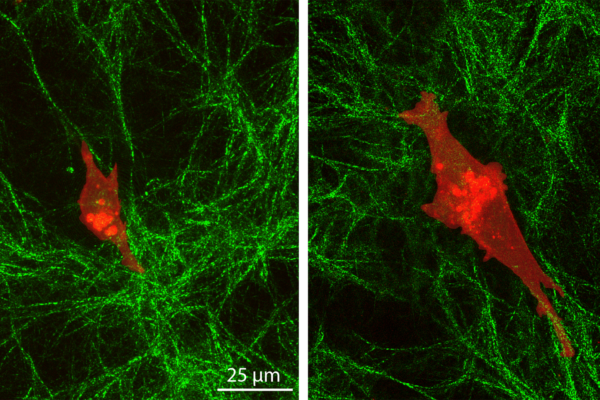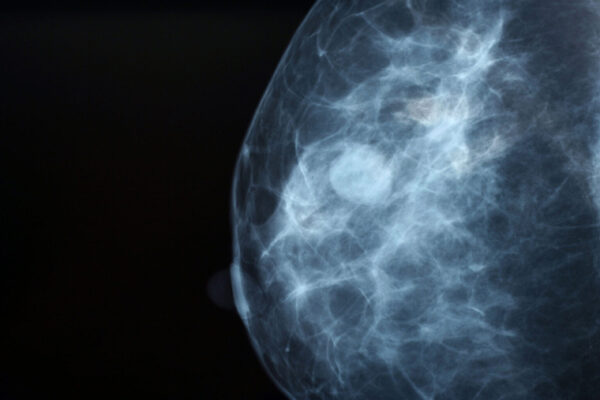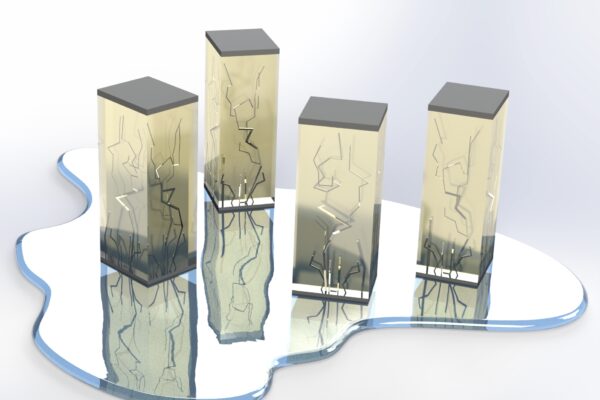Engineers at Washington University in St. Louis recently published research about how cells learn from past environments to promote future invasions.
The researchers are José Almeida, a graduate student in biomedical engineering, and Jairaj Mathur, a graduate student in mechanical engineering and materials science, working in the lab of Amit Pathak, an associate professor of mechanical engineering and materials science at the McKelvey School of Engineering. Their work was published online May 5 in the journal Molecular Biology of the Cell.
Almeida and Mathur found that cells can store mechanical memory of past environments, but, more powerfully, cells also transfer that memory to the extracellular matrix surrounding them. In this way, cells effectively reshape their environments to share what they’ve learned with future cells, via the matrix rather than individual memory, easing the way for future invasions. Encoding the memories externally also ensures the preservation of collective memory beyond the life of a single cell in much less time than similar adaptations could be propagated through gene activation and epigenetic remodeling.
Read more on the McKelvey School of Engineering website.



